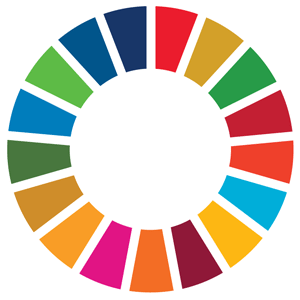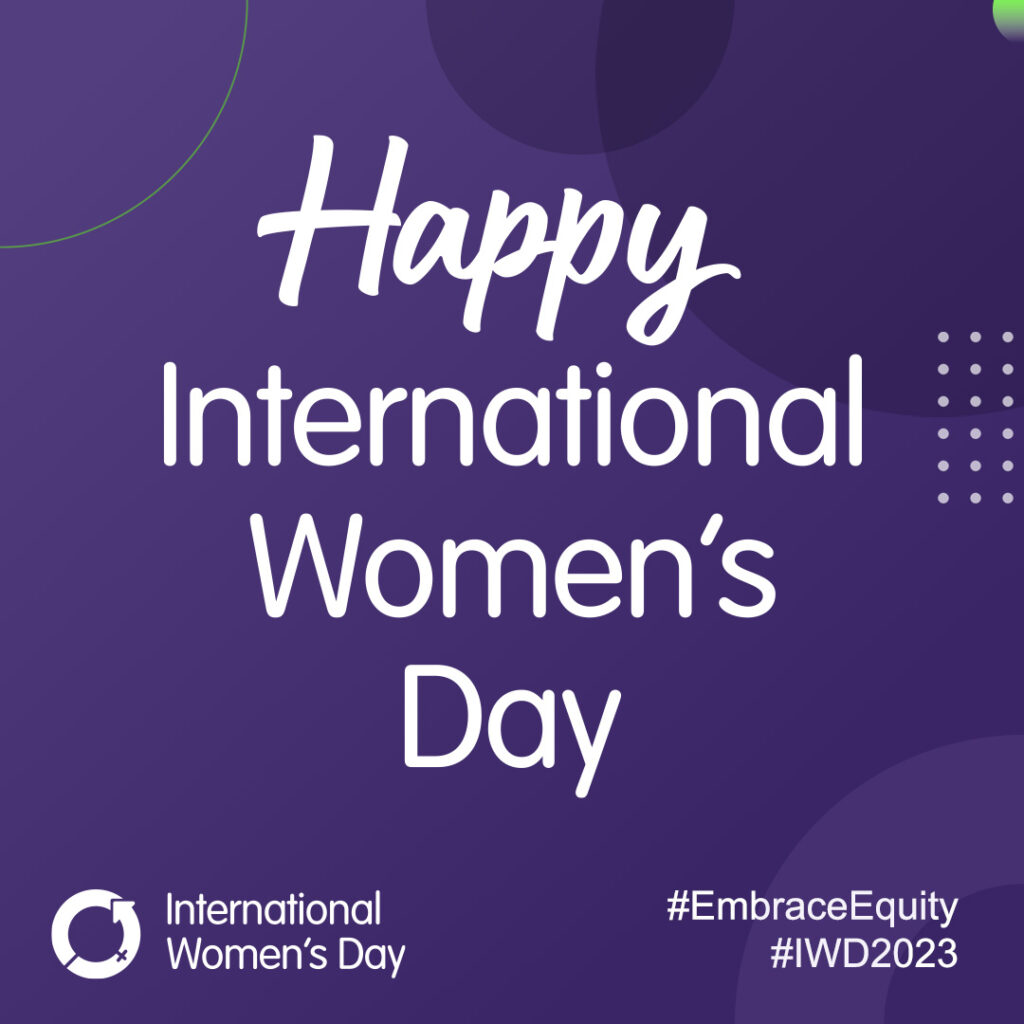Circularity is about more than environmental conservation. #IWD2023
Celebrating the women of the data centre and ICT sector.
With comments from Susanna Kass, Dr Deborah Andrews, Nour Rteil, and Astrid Wynne.
It goes without saying that the data centre and ICT sectors are growing faster than ever, with more than 27,000 people joining the internet daily. This inherently triggers us to think more and more about sustainable growth, considering that our industry is becoming a key contributor to the climate change discussion. However, renewable energy and innovation in energy efficiency aren’t the only factors of data centre and ICT sustainability. Circularity and sustainability are about more than environmental conservation. In fact, the United Nations Sustainable Development Goals break sustainability down into 17 key areas. These include, among others: no poverty, quality education, gender equality, responsible consumption and production, and partnerships for the goals.

The United Nations Sustainable Development Goals break sustainability down into 17 key areas.
The past few years have proven to be no picnic for the sector. Growth has outpaced talent acquisition, and we’re now faced with a shortage of talent and a workforce of senior leaders who often wear multiple hats to make ends meet. Uptime Institute forecasts that the number of staff needed to run the data centre space will grow to about 2.3 million by 2025. With that in mind, women on average represent a mere 11.5% of the total workforce, whether that be in senior leadership positions or technical and M&E roles.
So, there is work to be done to ensure that the exponential growth of our sector is sustainable in areas such as gender equality as well as carbon footprint, and that we can encourage more talent and more female representation to step towards our industry.
Here’s what we can do.
Education and awareness
A commonly reoccurring theme amongst analysts and thought leaders about talent acquisition is education. Dr Deborah Andrews, from LSBU and the CEDaCI project, notes that ‘there aren’t enough women in engineering roles. This reflects a problem across the general education system, which doesn’t adequately encourage women to study STEM subjects and stay on course to pursue a STEM based career’.
In fact, the WES also notes that the percentage of young female students who are interested in engineering roles and STEM subjects decreases heavily as they grow older and go through secondary education. ‘More should be done to encourage young women to convert their amateur interests into a career path that they would love to pursue’, said Deborah.
Deborah also notes that by utilising education and having a diverse panel of educators and thought leaders, including men and women of all ages, we can aid the talent shortage by drawing more awareness to our industry, while also encouraging increased female representation.
But raising awareness is not necessarily just external. Awareness must also be raised internally to ‘develop the necessary cultures which would enable a diverse talent pool while also enabling growth for women’, said Deborah.
Education and awareness
A commonly reoccurring theme amongst analysts and thought leaders about talent acquisition is education. Dr Deborah Andrews, from LSBU and the CEDaCI project, notes that ‘there aren’t enough women in engineering roles. This reflects a problem across the general education system, which doesn’t adequately encourage women to study STEM subjects and stay on course to pursue a STEM based career’.
In fact, the WES also notes that the percentage of young female students who are interested in engineering roles and STEM subjects decreases heavily as they grow older and go through secondary education. ‘More should be done to encourage young women to convert their amateur interests into a career path that they would love to pursue’, said Deborah.
Deborah also notes that by utilising education and having a diverse panel of educators and thought leaders, including men and women of all ages, we can aid the talent shortage by drawing more awareness to our industry, while also encouraging increased female representation.
But raising awareness is not necessarily just external. Awareness must also be raised internally to ‘develop the necessary cultures which would enable a diverse talent pool while also enabling growth for women’, said Deborah.
Incentives to grow
Highlighting the importance of education is Susanna Kass, who is leading the Talent in Tech initiative for the data centre sector, working with her peers to attract young talent into the industry.
“The sustainability topic is second nature to the younger generation. By paving the way forward to inspire and mentor younger generations, we will produce impacts. In my case, I volunteer to mentor 700+ STEM youths on their journey forward and to express their voices. Many are founders of organizations in their communities which exemplify UNSDG goals. For example, the founder Ecoteens is one of the young ladies that I mentor; she is an inspirational leader.” Read more: https://www.ecoteens.org/global-youth-sustainability-summit-2023
Amplification of innovation: more women means more women!
Yet another common consensus is to utilise resources available to us to amplify the voices and successes of the talented women who contribute heavily to our industry. For example, Nour Rteil, mentioned above, is leading the development and deployment of a machine learning model for client-side energy efficiency and carbon reduction by predicting the energy consumption of servers – this project is called InteractDC. Nour is amongst the rare young talent pool in the data centre and ICT sector and is already contributing massively to major sustainability issues that shroud our industry. Amplification of Nour’s voice, and other similar voices, only encourages more female talent to join our industry by proving that the opportunities exist, and successes are celebrated.
“Women might be unrepresented in the data center industry”, said Susanna Kass. “My view of the women in our sector is that the contributions made by women are making impacts; we need to amplify the quality of their work and results to attract more women to join the sector.”
Nour and Susanna both agree that young talent bring fresh ideas and approaches to the environment. “Young people bring new ideas to the table and are more adaptive to change”, said Nour; a trait which proves invaluable for an industry that innovates consistently at speed, all the time.
Astrid Wynne, from TechBuyer, is also a firm believer that amplification of the different approaches brought by women in the industry gives a great message to other women, especially the younger generation, that “there is a place for you in our industry; your approach matters.” An increased level of diversity is only advantageous, boosting sustainable solutions and innovation, while also incorporating the cost-sensitive and business-oriented nature of the sector into the impact of new talent.
An influx of increased female representation helps our industry reach sustainability goals in more ways than one. A UN report stated that the higher the proportion of women existing on the board is linked with a higher likelihood of successful sustainability strategies. “Women bring in new ideas and approach problems in different ways than men”, said Astrid, “and are sometimes more passionate towards sustainability than their male counterparts who could often be more business oriented”.
“Young people are more likely to be engaged and passionate about sustainability,” said Astrid, “and celebrating women in tech is a great way to attract more women and young people to join the talent pool,” – future proofing our industry.
When asked what she thinks about young people joining the sector, Susanna Kass said – “Amazing, in my one-word response. Young talent brings a fresh perspective and authenticity to lead the environment that they like to see it continues its growth in resilience! Sustainability leadership starts with You(th)!!”
Celebrating International Women’s Day
“Imagine a gender equal world. A world free of bias, stereotypes, and discrimination. A world that’s diverse, equitable, and inclusive. A world where difference is valued and celebrated. Together we can forge women’s equality. Collectively we can all #EmbraceEquity.
Celebrate women’s achievement. Raise awareness about discrimination. Take action to drive gender parity.
IWD belongs to everyone, everywhere. Inclusion means all IWD action is valid.”
https://www.internationalwomensday.com

CIRKLA is a proud supporter of International Women’s Day. We believe circularity is more than just about environmental conservation – circularity means sustainable development in all aspects of business. With the fast-growing nature of our industry, we are pleased to celebrate the data centre and ICT sector’s achievements in sustainability. Our 360 Circularity Audit and Certification program enables data centre businesses around the world to also demonstrate their support and success in contributing to circular economy. Click here to find out more.
About our contributors

Susanna Kass
Susanna Kass is top 50 Climate Change leaders, topmost influential Clean Energy and Climate Change Advocate. Kass is the Data Center Advisor on the United Nations SDG-EP. Kass spent 30 years in senior roles in the Data Center industry; Kass was COO, eBay International, GM APAC Data Center Operation at HP, VP, Global Data Center Business Operation at Sun Microsystems, Head of Innovation Renewable Energy at NextEra Energy and EVP, Innovation and Sustainability at BASELAYER Inc.
Currently, Kass is leading over 11Gigawatt of Clean Energy Data Center Infrastructure projects with premier hyperscale and clients; AQ Compute to scale out Pan-European Zero Carbon Haven. Kass is an Energy Fellow, guest lecturer, and a Graduate Management Board (GMB) member at Stanford University Women’s Circle Graduate School of Business (GSB) leading Impact, Analysis and Reporting.

Dr Deborah Andrews, LSBU & CEDaCI
“I am passionate about sustainability and as well as developing sustainable design and manufacturing strategies and concepts I try to ‘tread lightly’ in daily life and minimise my environmental footprint. I hope to encourage more girls and women to join the tech sector by being a positive role model and am very happy to contribute to this article on International Women’s Day!”

Nour Rteil, InteractDC
Nour Rteil is the Head of development at Interact; a machine learning software that delivers energy, carbon, and cost estimations for servers. She studied computer and communications engineering and has co-authored several academic papers about energy efficiency in data centers. Her research interests include green IT and sustainable computing.

Astrid Wynne, TechBuyer
Astrid is Head of Sustainability at Techbuyer, which specialises in circular economy, and Interact, a machine learning company that optimises server estates for energy, cost and carbon efficiency. She is Chair of the Sustainability Special Interest Group at the Data Centre Alliance and co-author of a number of academic papers on product life extension and energy efficiency for enterprise IT hardware.


